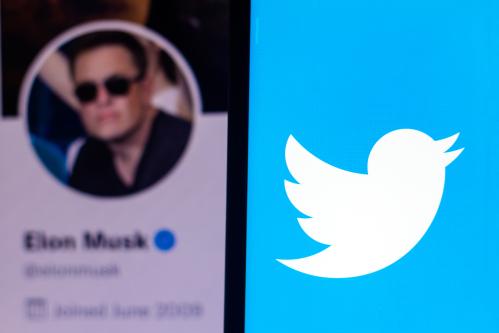Porter Goss, nominated earlier this week by President George W. Bush to head the Central Intelligence Agency, is likely to face a contentious confirmation process even if Democrats aren’t openly opposing his nomination. Republicans are likely to paint even mild Democratic hesitation as obstructionist. Democrats will ask whether Goss has sufficient independence from the president, and will use the hearings to spotlight broader concerns about intelligence reform.
Already prominent in the Democrats’ quiver is a four paragraph statement by Goss, speaking for the Bush-Cheney campaign, that attacked a June 1 John Kerry speech on preventing the spread of nuclear weapons. Goss’ statement has been presented by skeptics as evidence that he is more than willing to stump for the president, and hence is unable to be objective.
The campaign statement is hardly evidence that Goss would be politically compromised as CIA director. But his remarks about the Kerry speech in a less-noticed conference call, organized in tandem with his better publicized statement, are much more worrying.
Rep. Goss began the call inauspiciously with the declaration that chemical and biological weapons are “more dangerous” than nuclear arms. In fact, nuclear arms are far more lethal than chemical arms, and in most if not all cases would be more lethal than biological arms as well. This criticism might be dismissed as scholarly conceit; won’t Goss have technical experts around to set him straight? Yes, but such basics should already be rote for the chair of the House Committee on Intelligence.
The congressman’s more disturbing remarks in that half-hour June call with the press addressed North Korea’s nuclear weapons program. Goss said, “Clearly not making the progress at Yongbyon and other places because we’ve called their bluff successfully.” On purely technical grounds, this could not be further from the truth.
North Korea was making no progress at Yongbyon before 2002. American intelligence was certain of this, because it had human monitors at the site, and because any North Korean operation of the Yongbyon site would have been obvious. But according to American intelligence, since 2002, North Korea has restarted every key facility at Yongbyon, and has produced enough plutonium for at least six additional nuclear weapons. Any lack of progress by North Korea has been because of technical hurdles, which the CIA also watches for—not because of any calling of “bluffs.”
In short, Goss’ claim about North Korea differed sharply from American intelligence analysis. But perhaps he misspoke?
Not so. A perplexed reporter followed up, asking Goss how he qualified six new North Korean weapons as American “progress.” The congressman’s response was startling: “What they’ve been doing behind the curtain for a long time may be far greater than what you know—that you’ve just quoted to me now.”
To suggest that the intelligence community knows about a massive parallel North Korean program that hasn’t been publicly disclosed strongly strains credulity. Tellingly, when asked whether he had any evidence to substantiate his claims, Goss dodged. The administration would do well to inform the American people if North Korea has indeed been churning out bombs in secret, or otherwise to repudiate Goss’ claim. In the meantime, it seems sensible to believe the intelligence community’s already dire public estimates, which leave no room for the fantastic picture Goss paints.
Perhaps he genuinely believes that the CIA has so failed, its analysis so poor, that he cannot responsibly base his own claims on the agency’s estimates. This would be a very harsh criticism. But even if it were so, the responsible reaction would be to admit uncertainty, rather than to replace suspect CIA analysis with one man’s guess.
Should these odd comments disqualify Goss from becoming director? Certainly not by themselves—there are many important issues to weigh in evaluating the nominee. But senators need to shine a spotlight on this peculiar episode, behind closed doors if required to protect intelligence secrets, and demand that he explain why he made these claims. They could offer unsettling insight into how Porter Goss relates evidence to truth.

Commentary
Op-edSenate Should Check Doubts About Goss
August 13, 2004